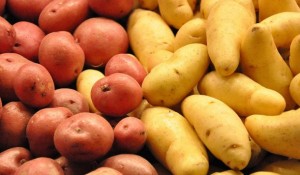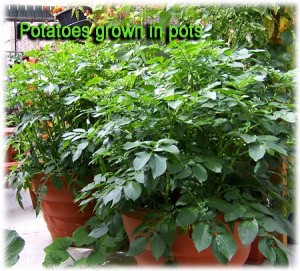Widely available, cheap, and in some form usually eaten by even the most picky eaters, potatoes are a staple in most households. As well as coming in many varieties, with subtle colour and flavour differences, they have the added benefit of being very filling, something that will be very useful if/when food supplies are restricted. Potatoes are easy to grow, even a large tub on a patio will produce a useful crop.
There are a few other things going for the humble tater. A single large potato contains potassium, magnesium,copper,iron vitamin C and almost all the B vitamins as well as resistant starch, a substance that has many health benefits. Resistant starch is proven to lower blood sugar levels and have a positive effect on insulin production. It reduces the appetite and has major benefits for the digestive system. Anything that can help maintain good health in a situation when there may not be access to doctors should be considered a crucial part of our diet.
There have been accounts of people living on nothing but potatoes for a considerable time. This is not something I would advocate, but the results were very interesting including weight loss of over 20 pounds in a 60 day period. You can read about Chris Voigt of the Washington Potato Commission here.
As you see the humble potato is not as humble as its appearance suggests and it’s well worth considering mastering the technique of how to grow them. Although we may have stocked up on rice and pasta, neither of those is as nutritionally packed as spuds.Pasta and rice may also be difficult to replace when our stored supplies are exhausted. I know making pasta is not difficult but it does require a fair amount of time and eggs which may not be readily available in a crisis situation.
Potatoes are not time intensive and give a large, nutritionally worthwhile yield for a small amount of effort, something that may well be a major consideration in the future.
Take Care
Liz
This article was originally published at Ready Nutrition™ on May 7th, 2014








